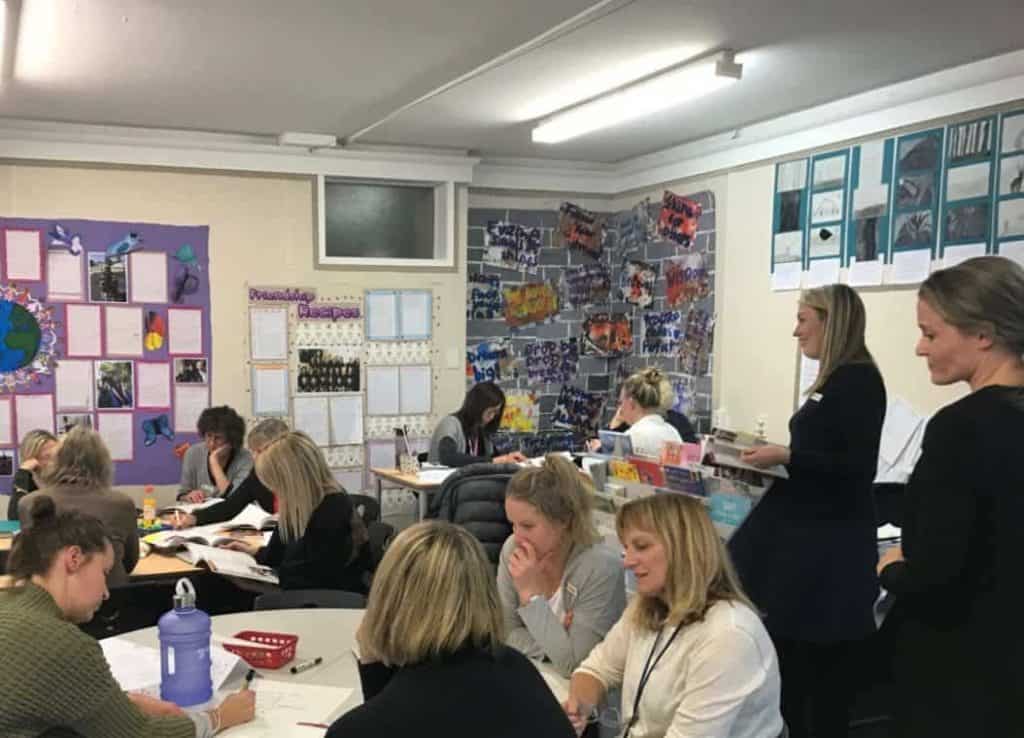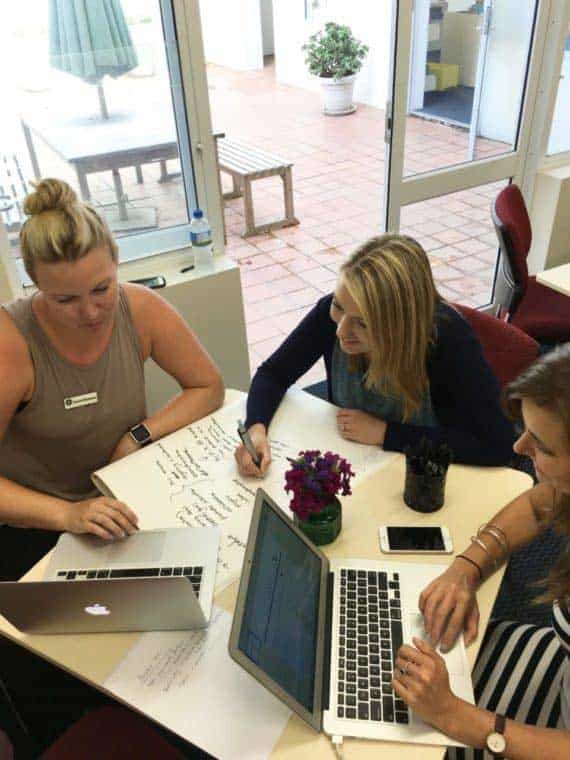Julie Gifkins, Head of Junior School at St Cuthbert’s College in Auckland discusses the journey her teachers have been on over the past 4 years to use data and evidence more effectively to inform their practice and to identify areas they need to improve.
When Julie first took on the Head of Junior School role she identified four primary issues around data and evidence use:
- The privatisation of data and the lack of sharing and discussion around data
- Over assessment
- The range of assessment tasks being used
- No moderation of assessments

Opening up access to data
Julie decided to use Google Drive and Google Docs as a means to lift the lid on data across the Junior school and to enable the open sharing of data among all teachers. Teachers are able to input data into Google Docs and it then feeds into the student management system. Julie took time to ensure that there was consistency among all staff in how they were coding and recording data, to ensure continuity and ease of analysis.
Forming consensus on the what, why and how of assessment and data
Much of the initial professional learning focused on discussions about what assessments they were going to use at each year group and developing a shared understanding of why these were used. Having established this common base understanding enable the focus to shift to how to implement and mark each form of assessment, in order to ensure consistency. Julie noted that when she first started there was considerable variation in assessment practices. For example for running records there was little consistency in how teachers were questioning the girls or how they were interpreting the results. To build a common understanding of how to undertake a running record, the staff critiqued each others’ running records.
Developing trust through moderation
Moderation has become a central component of the Junior School’s use of data and evidence. To get staff used to moderation, Julie brought together year levels or syndicates and got them to assess pieces of work and then to explain their reasoning. While this was initially a challenging process for many teachers, over time it was critical in building trust among staff and enabled them to have robust conversations about curriculum levels and assessment tasks and ultimately motivated staff to undertake and drive this work themselves.
Supporting teachers’ data literacy
Julie is a firm believer in teachers being responsible for marking and inputing the data from the standardised assessments the school undertakes three times per year (beginning, mid and end). By marking and inputting their own data, teachers are beginning the analysis process, encouraging them to think about their students and the key themes emerging from the data. Each level also completes a one page template (Exemplar templates here) where they answer four question: (1) What are the celebrations of this cohort of data? (2) What are the barriers to achievement or progress? (3) How do these data influence budget decisions (4) What are our agreed top three priorities? This exercise is critical for empowering teachers and translating teacher voice into action. Link to completed templates.
As the head of school, Julie does a deep dive into the data before the start of the new school year. She will know where every girl is at, whether she is making satisfactory progress, and if she hasn’t what interventions are being put in place to support her.
Moving beyond reading, writing and maths

Julie’s current focus is on moving beyond just collecting data on reading, writing and maths to focus on other curriculum areas and also on students’ wellbeing.
The school currently are working on identifying what progress at each level looks like in Social Studies and how to measure and track this progress from Year 1 to 6.
They also have begun to track hope, efficacy and engagement across time. Julie wants to know that the students are happy, engaged and hopeful in their learning as she believes that this is the platform that will enable them to take more risks in their learning, something the school is focusing on. The long term goal is to be able to track engagement and self-efficacy data across the whole school, from Years 1 to 13.
When beginning on this work, Julie and her team began by looking at SATIS, the key competencies and Bandura’s self-efficacy scales. They then discussed what they would be able to do with the information and data they collected and how it linked both to pastoral and academic goals. They have decided to use a pre-existing survey (https://www.excelatlife.com/questionnaires/self-efficacy.htm), which has been rigorously tested and has high levels of reliability and validity ( http://userpage.fu-berlin.de/~health/engscal.htm). The next stage in the journey is using the survey with the students and thinking about how they can use the data to inform what they do in the school.
